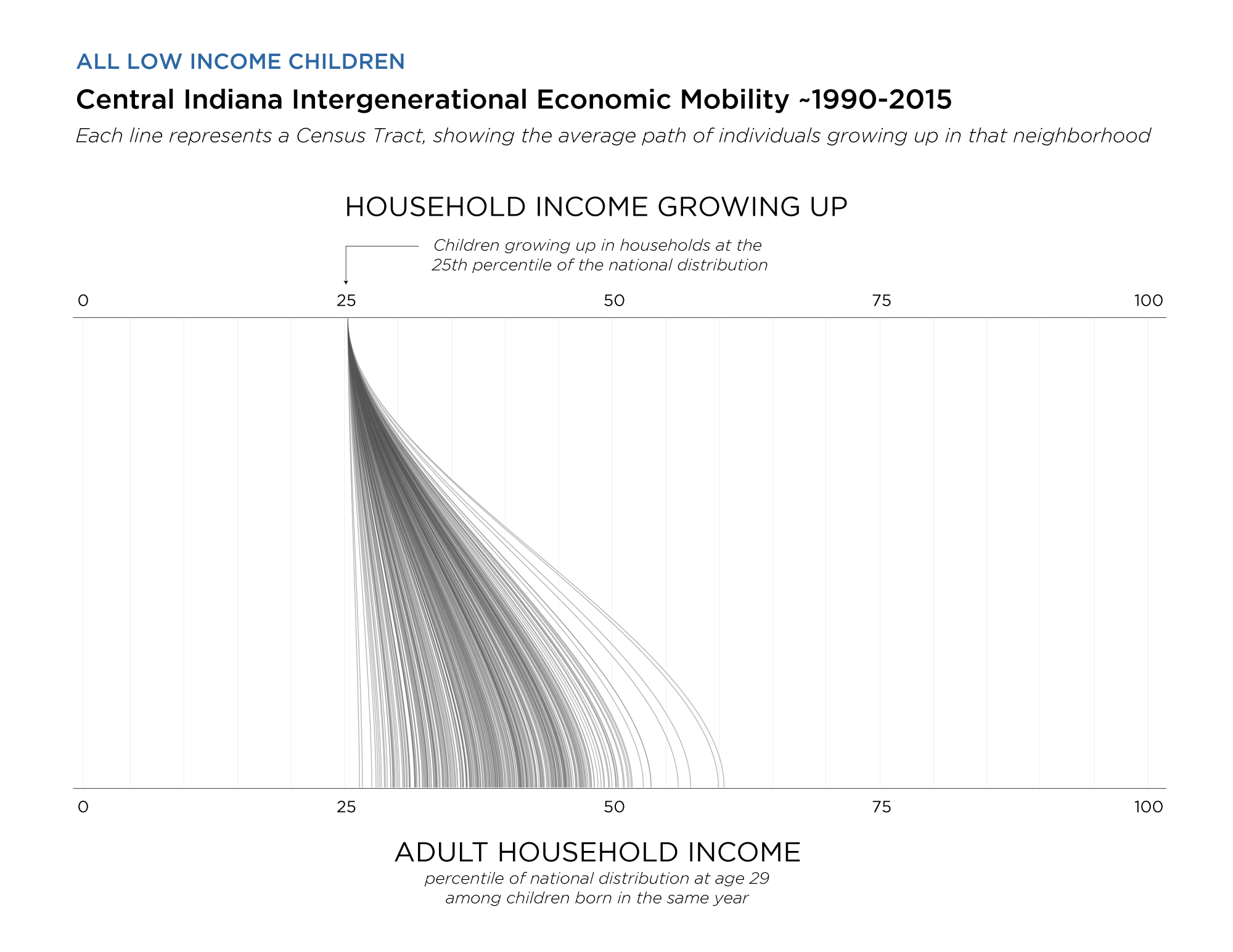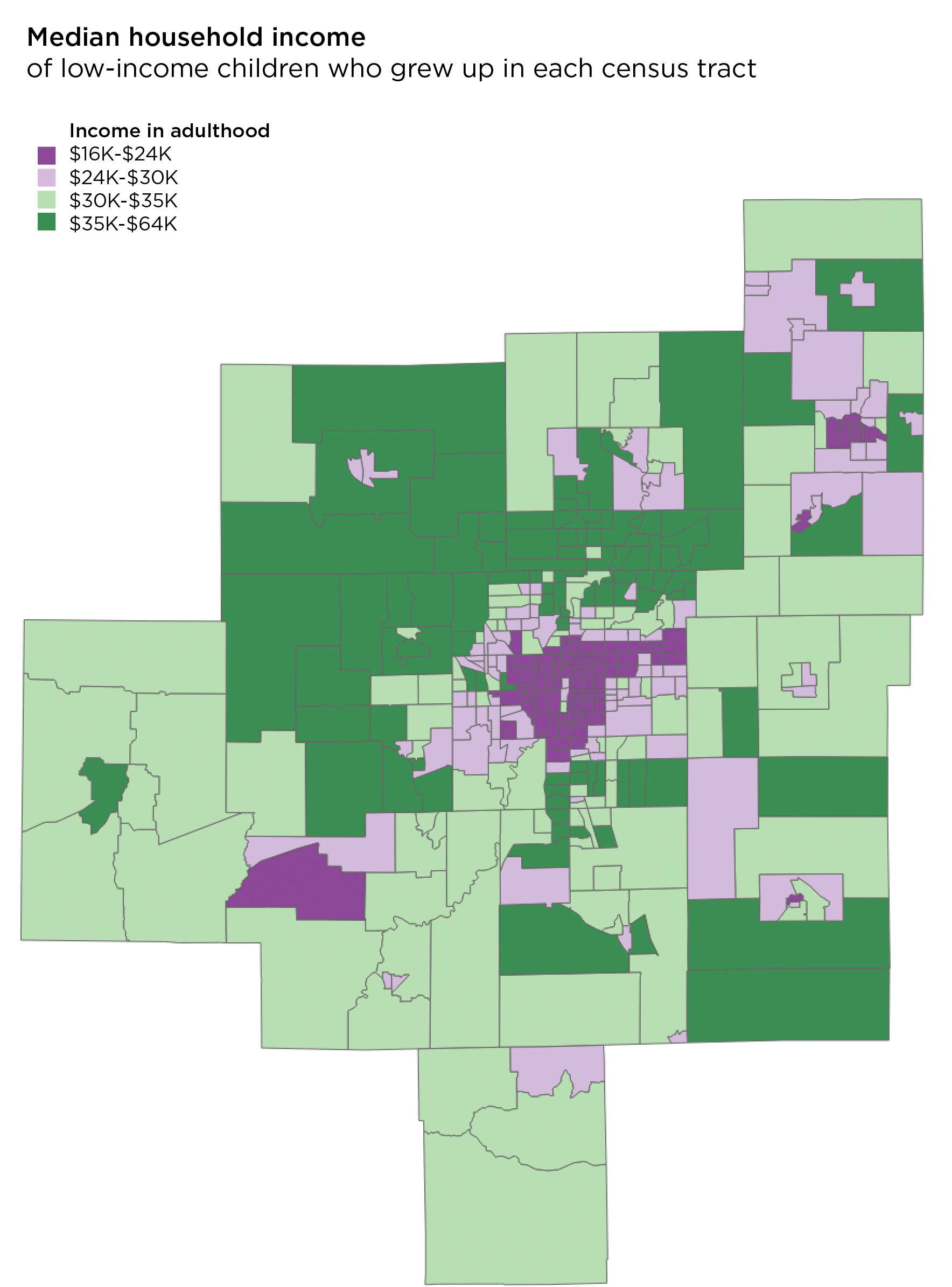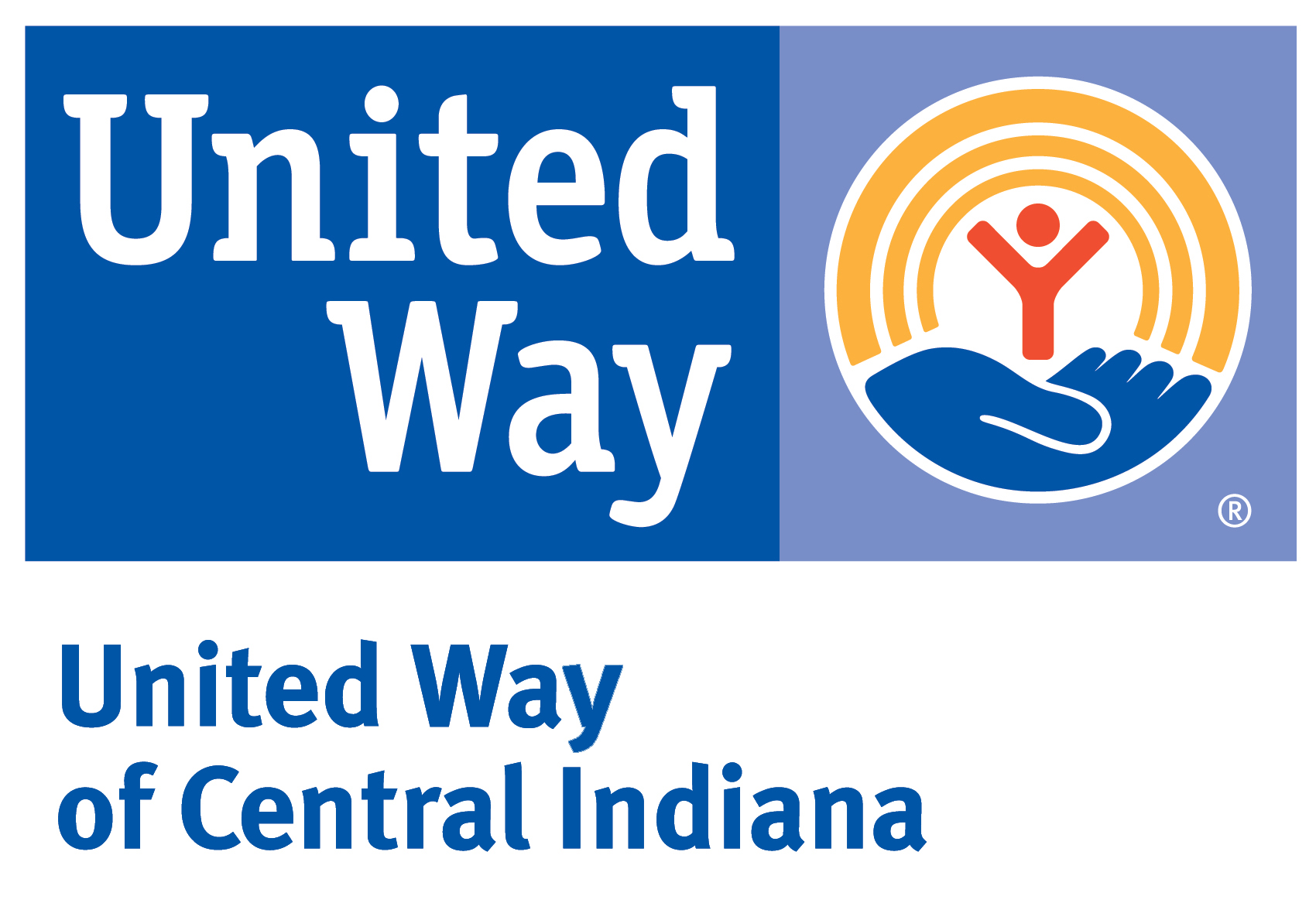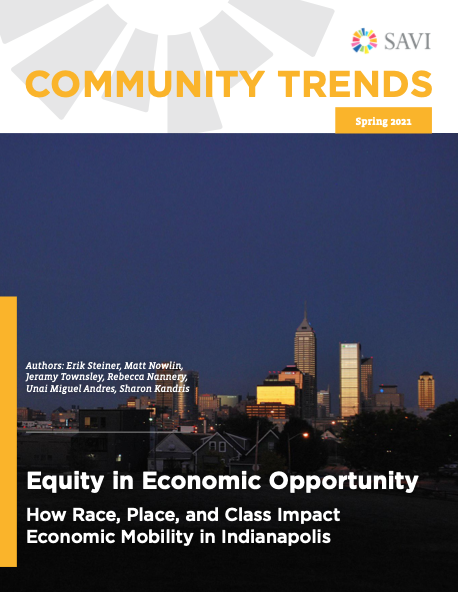Equity in Economic Opportunity
SAVI Talks - March 25, 2021Building on research by Harvard’s Raj Chetty and his team, we are developing new insights and highlighting findings about opportunity in Indianapolis neighborhoods. The average child born into a high-income family in Indianapolis earned $50,000 in household income when they were about 35. Children born to low-income families grew up to earn $27,000.
- Indianapolis’ level of opportunity for low-income children is lower than all but two of the largest U.S. cities. Only Atlanta and Charlotte have worse outcomes than Indianapolis.
- The average Black child born in Indianapolis earns $9,000 less than the average White child. There is a spatial disparity too: In many neighborhoods, children who grew up there earn less than $20,000 per year. In other neighborhoods, children born at the same income level grow up to earn $35,000 or more.
- Neighborhoods that are segregated clearly have lower opportunity outcomes for children. People born into Redlined neighborhoods have less economic opportunity, even when controlling for their parents’ income.


Articles and Story Maps
Explore other research and interactive content we have developed around equity.
Greenspace Assessment for Marion County
Greenspace is an important component of urban centers and can have many beneficial effects for both humans and the environment. However, greenspace is not equal across an entire urban center, nor can it be developed in the same ways throughout a city. Based on a...
Academic Standardized Test Scores for the Hearing Aid Assistance Program of Indiana (HAAPI) Participants and Applicants
This research was funded and produced in partnership with Hear Indiana, whose mission is to create equal opportunities for children with hearing loss through Listening & Spoken Language services.Summary Hear Indiana is partnering with the Polis Center to...
Equity in Criminal Prosecutions: Analyzing Case Filings from the Marion County Prosecutor’s Office
The Kheprw Institute and The Polis Center are partnering to better understand the criminal justice system in Marion County and investigate potential disparities. Previous research from the Polis Center estimated that Black residents of Marion County were 2.7 times...
Support and Training
OUR EMPHASIS: Analysis We turn data into actionable information and share those results in accessible formats.Interactive Data Tools We build web platforms where the public can freely access data and knowledge.Data Integration We integrate data from a multitude of...
2022 Midterm Election Voter Turnout in Marion County
Key points Voter turnout in Marion County is low relative to Indiana and the U.S. Within Marion County, there is great variation in voter turnout between precincts Lower voter turnout in Marion County tends to occur in areas that are less affluent, have lower...
Transportation Equity and the Older Adult Population
Access to transportation is important because it empowers older adults to maintain their independence. Transportation opportunities for older adults may take different forms, including driving, public transportation, ride-share service, or shuttle buses. This report...
Domestic Violence in Marion County Criminal Justice System – 2022
This is an update to our 2018 report. By combining data from different elements of the criminal justice system, we reveal basic statistics about domestic violence in Marion County. Some key findings include: In 2020, there were an estimated 10,105 victims of domestic...
The Good Jobs Gap
There are one million jobs in Central Indiana, but only 43 percent are “good jobs” that pay at least $40,000 per year and provide health insurance. Understand who has good jobs and what is being done to create more.
Data & Drafts Follow the Money: Indianapolis Evictions in 2022
Eviction filings are on the rise compared to last year, but still lower than before the pandemic. Most evictions are from large owners of big apartment complexes.
Data & Drafts: A Decade of Decline: College-Going Rates in Central Indiana
An analysis of Central Indiana high schools shows that declines in college-going rates impact everyone, from affluent suburban communities to economically disadvantaged neighborhoods.
Authors
Sharon Kandris
Associate Director,
The Polis Center
Jay Colbert,
Data Manager,
The Polis Center
Jeramy Townsley,
Visiting Research Analyst,
The Polis Center
Matt Nowlin,
Research Analyst,
The Polis Center
SAVI Talks Panelists
Patrice Duckett
Exec. Director
Fay Biccard Glick Crooked Creek Neighborhood Center
Amy Nelson
Exec. Director
Fair Housing Center of Central Indiana
Pamela Ross
VP of Opportunity, Equity & Inclusion
Central Indiana Community Foundation
SAVI Talks Moderator
Jill Sheridan
Health & Science Reporter
Indiana Public Broadcasting, WFYI
Event Partners





